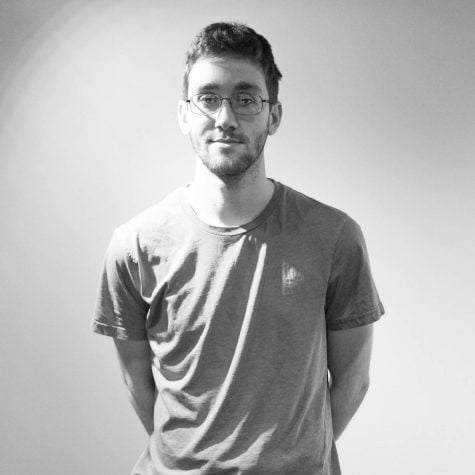Disclaimer: This story is a part of our April Fool’s edition, The Goofordian. This story was created by Guilfordian staff and is not based in fact.
An atmosphere of secrecy has been exposed. Tensions have erupted. The happenings behind closed doors have taken their toll.
Administrators at Guilford College are now waging a campaign to elicit more student transparency on campus.
“I think that what the students are doing is extremely cloak and dagger,” said Visiting Assistant Professor of Political Science Robert Duncan. “And that is saying something, I was in the CIA.”
The clandestine operations of the student body have, until recently, been a touchy topic. But, several administrators have spearheaded a movement to change current circumstances.
“We want to revolutionize the student-administrator relationship,” said Chief Planning and Senior Management Officer Jeff Favolise. “It seems as if (student) power has gone unchecked for far too long.”
Topping the list of complaints is the scant administrative input in student affairs.
“We are very open with the students in our dealings,” said Executive Associate to the President and Assistant Secretary to the Board of Trustees Joyce Eaton. “We just don’t see the same level of generosity on their part.”
One venue where administrators and students can come together is at Community Senate meetings. Some, however, think such gatherings are not conducive to transparency.
“Community Senate meetings are a sham,” said Vice President for Student Affairs and Dean of Students Aaron Fetrow. “Administrators may be invited, but that doesn’t mean much. It’s just for show. It’s a conspiracy. Students hold the real meetings in secret, behind closed doors.”
The student body has long been rumored to only pretend to incorporate administrators in their decision making processes.
“In reality, the Community Senate doesn’t exist,” said junior Gabriel Mirabelli. “Students have a separate, independent organization. That’s where the real work is done.”
This ulterior organization meets without any external input, utilizing on-campus locations such as the Greenleaf and off-campus sites like Carolina’s Diner. The latest closed meeting was on March 13 in the Guilford Woods, fueling administrative ire and protest.
“I was unaware that administrators were unhappy until recently,” said senior Samir Hazboun, president of the Community Senate and the undisclosed organization. “We value their input. If they feel underrepresented, I recommend they pursue the matter via the appropriate channels.”
One of the many decisions announced at the meeting was the go-ahead for an on-campus construction project. The venture sponsors building permanent facilities for the unspecified student government organization.
Another announcement at the meeting revealed plans for a classified student body presidential search.
“It’s outrageous,” said Vice President for Finance Greg Bursavich. “Students are spending all this money without any discussion. That’s not democracy. That’s not the Quaker spirit. That’s not the Guilford way. Think about what that money could be used for — like teacher pay or better campus infrastructure.”
Preliminary cost estimates of the project have been withheld, as have the names of potential student body presidential candidates and the date for the next unnamed student government meeting.
The issues dividing students and administrators will likely continue to strain their relationship.
“The status quo has certainly not worked well,” said Favolise. “For things to change, I think students must address the administration on our level.”
Plans are tentatively in the works to hold a town hall style meeting to improve student-administrator relations and allow for administrators to meet the faceless entity that is the “student body.”
[photomosaic nggid=214]







